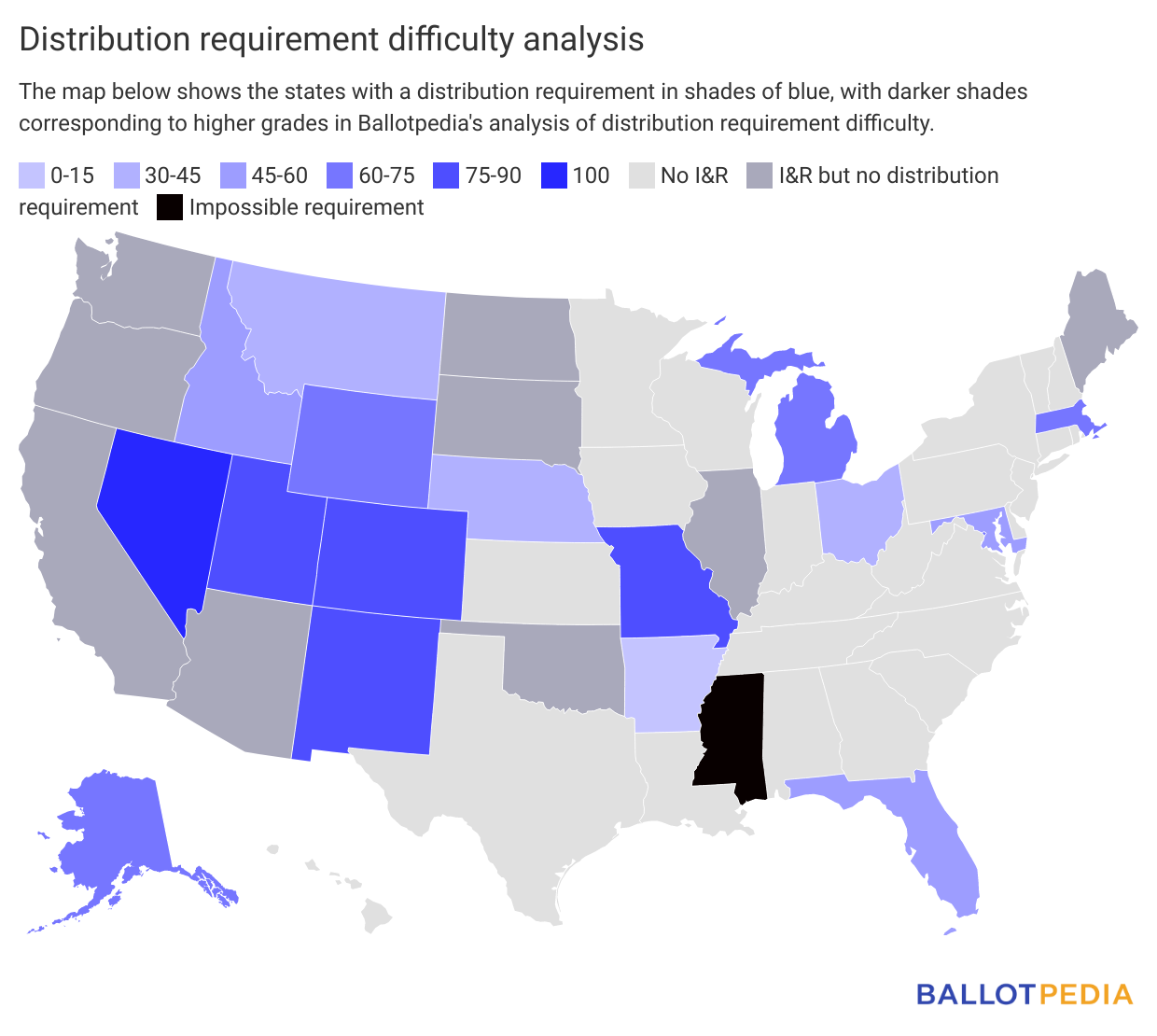

Checking in on laws governing ballot measures in 2021
Last week, I briefed you on the Mississippi Supreme Court ruling that determined the state’s distribution requirement for ballot initiatives was, in fact, mathematically impossible to meet and has been since 2001 congressional reapportionment when the state lost a seat.
Today, let’s look at some changes to the laws governing ballot measures coming from other states this year.
On April 17, Idaho Gov. Brad Little (R) signed Senate Bill 1110. The bill changed the state’s distribution requirement for ballot initiative and veto referendum signature petitions to require signatures from 6% of voters from all 35 legislative districts instead of the previous requirement of 6% of voters from 18 of the state’s legislative districts.
With SB 1110 signed into law, Idaho joined Arkansas, Florida, Montana, Oklahoma, South Dakota, and Utah in passing bills restricting the states’ initiative processes so far in 2021.
In the 26 states that feature the powers of ballot initiative, veto referendum, or both, 16 have laws imposing distribution requirements, while 10 of them do not. Four other states have distribution requirements based on legislative districts like Idaho. In seven states, the distribution requirements are based on counties. In four states, the distribution requirements are based on U.S. congressional districts. Ballotpedia analyzes the difficulty of distribution requirements based on two different factors, each scored from 1 to 100, with 100 being the most difficult. Before SB 1110, Idaho had a score of 51 for each factor. The distribution requirement in SB 1110 has a score of 100 for each factor.
Ballotpedia has tracked 197 legislative proposals concerning ballot initiatives, veto referendums, referrals, local ballot measures, and recall in 39 states in 2021 legislative sessions. Notable topics among bills introduced in 2021 sessions include supermajority requirement increases, signature requirement and distribution requirement increases, single-subject rules, pay-per-signature bans, residency requirements and other circulator restrictions, fiscal impact statement and funding source requirements, and ballot measure campaign contribution restrictions.
We recently published an analysis of changes to a state’s initiative and referendum processes that make it harder for proponents to qualify a measure for the ballot and see it approved by voters and changes that make it easier.
COVID-19 policy changes and events one year ago this week
Let’s continue our Monday series looking back at coronavirus-related policy changes and events that happened last year. Here is a sampling of events from one year ago this week.
- Election changes:
- On May 25, 2020, Judge J. Michelle Childs of the United States District Court for the District of South Carolina barred election officials from enforcing South Carolina’s witness requirement for absentee ballots in the June 9 primary and subsequent runoff elections.
- On May 27, the Texas Supreme Court ruled that a voter’s lack of immunity to COVID-19 did not qualify as a disability under the state’s election laws and, therefore, could not be cited as an excuse for voting absentee.
- Travel restrictions:
- On May 26, Delaware Gov. John Carney Jr. (D) announced that he would end travel restrictions on out-of-state visitors on June 1.
- Federal government responses:
- On May 26, President Donald Trump (R) banned foreign travelers who had been in Brazil in the last 14 days from entering the United States.
- Stay-at-home orders:
- On May 29, Northern Virginia (NOVA), as well as Richmond and Accomack County, moved into Phase One of the “Forward Virginia” reopening plan, ending the stay-at-home order in that region. Gov. Ralph Northam (D) previously ended the statewide stay-at-home order for all counties except those in the NOVA region on May 15. Illinois Gov. J.B. Pritzker (D) allowed the statewide stay-at-home order to expire. He issued the order on March 20, and extended it on March 31 and April 23.
- Mask requirements:
- On May 29, Northam issued an order requiring people 10 and older in Virginia to wear a mask when indoors.
#Monday trivia
On Friday, I told you about the oldest and youngest supreme courts in the nation. At 329 years old, Massachusetts takes the cake at having the oldest court of last resort. The youngest state supreme court is in Kentucky.
For today’s question, I’m asking: How old is Kentucky’s state supreme court?

